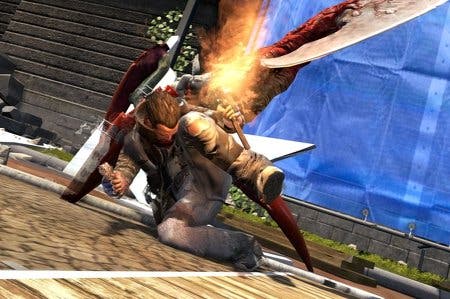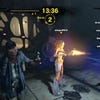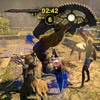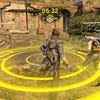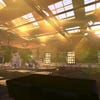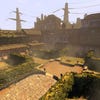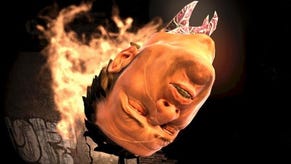Rebellion discusses NeverDead's "challenging" development
"When somebody is paying you to dance, you have to dance."
UK developer Rebellion has discussed the development of NeverDead, revealing the creative tensions that resulted from having to work under a Japanese publisher and director.
PlayStation 3 and Xbox 360 action game NeverDead was published by Konami and directed by Shinta Nojiri, the Japanese developer who has worked on the Metal Gear Solid series since 2000.
Rebellion was contracted to build the technology behind the game, focusing on graphics, performance and destruction. Nojiri, who had ultimate control over the project, built the game's story and determined the gameplay.
Upon its late January/early February release NeverDead received mixed review scores, including a 6/10 from Eurogamer.
"Ultimately, NeverDead feels like gaming's equivalent of Buckaroo Banzai, or Phantom of the Paradise, or any one of those weird B-movies you used to find lurking in the midnight spaces of an old video store and which you often loved for their unlikely concepts or their wilful obscurity more than their actual quality," Christian Donlan wrote. "NeverDead hasn't been given room to get the most out of its strange ideas, but it's still plucky, warm-hearted and genuinely idiosyncratic. How often can you say that about a shooter these days?"
NeverDead has settled on a Metascore of 52/100.
We talked with Rebellion boss Jason Kingsley to discuss the development of the game and get his reaction to NeverDead's review scores.
NeverDead has a Metascore of 52, but the review scores range from as low as 2 to as high as 8. What's your reaction to the reception from critics?
Jason Kingsley: What's interesting is almost all the games we've ever done have been better reviewed by users than by aggregation sites on balance, which is an intriguing area to be. So, arguably we make games users who pay money want to play, but somehow we seem to be missing the attraction to the more professional reviewers. I don't quite know what that is.
We've been concentrating very hard with Sniper (V2 Elite, out in May) on quality, on gameplay, doing the best we can. The great thing about Sniper is we've had very constructive conversations and production relationship with 505. We're also self-funding the game, so we're putting our own resources into it. So ultimately, with Sniper, we're calling the shots.
With NeverDead it was a more collaborative approach. As you will know, with collaborations, there are sometimes tensions and difficulties and difference of opinion over what should or shouldn't go into the game. At the end of the day, when somebody is paying you to dance, you have to dance. You can argue I don't want to dance like that, but if they say dance you end up having to do it.
"At the end of the day, when somebody is paying you to dance, you have to dance."
So what we concentrated on with NeverDead was the graphics, the engine, the destructibility, all the technical side of things. What we didn't have any substantial input into at all were characterisation, script, and large elements of the way the gameplay rolled out over the game.
If you like, the elements I'm particularly proud of because we were involved, were the massive technical achievement to get the destructibility, which some reviewers haven't noticed because it's so seamlessly integrated and so functional. It just seems to work really well, that it's almost a given. If you compare it to the destructibility of other games, it's vastly superior.
Having said that, we had Shinta Nojiri embedded here for much more than a year, controlling a lot of the elements of content. He comes from a different culture. He's Japanese. We had a full-time translator with us. He was very much working from the Eastern methodology, the Japanese style of gameplay, and it created some really interesting creative tensions.
"What more can I say? We're very proud of what we did."
What more can I say? We're very proud of what we did. We're disappointed the game hasn't had a universal acclaim. We think we did a lot of really original and innovative stuff. Sometimes that doesn't seem to gain you much credit with some reviewers who maybe just want more of the same as another game.
We're very proud of what we achieved. The team worked f***ing hard to get the game out and on time. It's a very good quality technical achievement, and it's had mixed reviews in terms of the gameplay content.
Let's not beat around the bush here. Are you blaming Konami for the quality of the game?
Jason Kingsley: No. I'm not laying any blame. There are reasons why things are a particular way. They were, Shinta made his gameplay decisions because he was in charge. So, consequently, as a boss, you get to tell people what to do, ultimately. So the people in charge have to accept the glory and all the blame depending on the outcome.
Co-operative development is always challenging. There's almost always some level of compromise along the way. Certain people have very strong opinions. We've worked very hard to get Sniper as good as you can get it, and that's very exciting and a very different approach, because we're all pulling in the same direction. We don't have anybody with a different cultural outlook.
Is Sniper, then, the first result of your focus on quality, which you talked about in an interview with Edge last year?
Jason Kingsley: I guess, ultimately, it's the one we had full control over, so yes, being blunt. That's the one we were 100 per cent in control of. What we were in control of with NeverDead was the technology, the graphics engine, the destructibility, all the technical side of things. And we had an external director making the story he wanted to tell. Our obligation as the technical team was to make his vision come true. Now, you disagree with his vision, well then that's fine. That's up to you.
With Sniper Elite we've shared the vision internally. Steve (Hart, lead producer) has driven that vision. We had a very good thing to build from with the original Sniper Elite. One of the key pillars was, guys, don't throw anything away any of the great stuff we had in the original. Let's put more better great stuff into the new one. We could do with the technology, and we could do with where the graphics quality has gone, and we can make a game that is both thought-provoking and challenging, but also strikingly-beautiful in many, many places.
